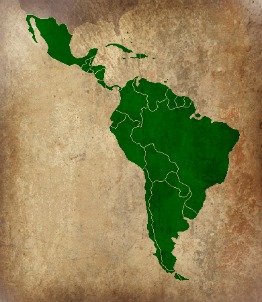Latin America Climate, Energy And Environment News
 By Amanda Maxwell, La Onda Verde de NRDC
By Amanda Maxwell, La Onda Verde de NRDC
Chile
Four new photovoltaic solar energy projects received environemental approval from Chile’s authorities. When built, the four –Encuentro Solar, Laberinto Solar Estes, Crucero Solar and Laberinto Oeste—will have a combined installed capacity of 327 MW at a total price tag of $1.210 billion. (Estrategia 8/21/2012)
Chile’s government announced some details about its much-anticipated “public electricity highway,” which it is calling “the proposal for a robust and sustainable transmission system.” The government stated that the proposal will not be a plan for a specific line, but rather changes in legislation that govern how transmission lines are built. It will hold a tender process giving private consultants two years to present their planned designs. It also said that environmental issues are not priority concerns for the project. When the proposal is finished, the government will present it to Congress for approval. (La Tercera 8/23/2012)
Costa Rica
Costa Rica will soon have a new Vice Ministry of Water and Seas under the Ministry of Environment of Energy. The government hopes this new department will help keep the country’s rivers clean and protect its marine resources, two areas where much work remains to be done. Despite its green reputation, Costa Rica is home to the most polluted river in Central America and its oceans and wetlands are under pressure. (El País 8/25/2012)
To cut down on fishing and commercialization of at risk species the Costa Rican NGO has published a guide to help consumers identify fish and shellfish species. The guide was developed following passage of a law earlier this year that requires labeling fishery products using the commercial name of the species. Many fishermen will attempt to sell species accidently caught as by catch, like endangered sharks, under other names. This guide aims to help eliminate that practice. (El Financiero 8/20/2012)
Costa Rica was recognized by the Secretariat of the Montreal Ozone Protocol for its advances in ozone layer protection. Since 1991 Costa Rica has taken several steps, such as creating a national license system for regulated substances, that allowed it to completely eliminate chlorofluorocarabons in 2010. (El Financiero 8/20/2012)
Mexico
The Mexican group CEMDA alerted that a new coastal resort is proposed near Cabo Pulmo National Park, where the cancelled Cabo Cortés development was once planned. The new project called Los Pericúes is proposed by the Spain-based company, OHL Desarrollos in conjunction with Desarrollos La Ribera. CEMDA noted that the developer already has a concession for 4.5 million cubic meters of water in the Santiago Aquifer. The group also highlighted that the Federal Attorney of Environmental Protection (Profepa) recently recognized the need to investigate the cancelled Cabo Cortés project for irregularities. (Peninsular Digital, 8/24/2012)
Although Mexico has great potential for renewable energy, such as solar power, currently only 3 percent of the country’s energy needs are met by renewable sources. While Mexican researchers have studied solar applications for years, these efforts have not been scaled up yet and there are which must still be imported. (Informador 8/21/2012). One region looking to tap into its abundant renewable resources is Durango which has some of the world’s greatest solar potential. Durango authorities are looking into thefeasibility of building a renewable energy center to help the region develop its renewable energy resources and reduce its reliance on imported energy. (El Sol de Durango, 8/20/2012)
The concessions that were granted during former President Fox’s administration in the Nayarit Riviera have become a point of contention between environmental groups, neighboring communities and the Secretary of Environment and Natural Resources (SERMANAT). Many local groups have complained that the owners of these concessions have been negatively impacting the environment and impeding their access to the beaches. The Federal Attorney of Environmental Protection (Profepa), the Federal Zone of Marine Territory (Zofemat) and SERMANAT have announced that they are open to receive all formal complaints about the revocation of these concessions. (Milenio, 8/22/2012)
Due to the sinking of a buoy owned by Petróleos Mexicanos (PEMEX), six beaches have been contaminated with oil. The Federal Attorney of Environmental Protection (Profepa) has ordered PEMEX to commence all possible actions to impede the spread of the oil and to begin removing the substance from the 6 beaches found contaminated. Profepa quoted a law passed that states that all incidents must be reported immediately to prevent undue damage to the environment. PEMEX waited days after the sinking to notify the proper authorities. (Boletin, 8/23/2012)
This article was first published in NRDC Switchboard.

